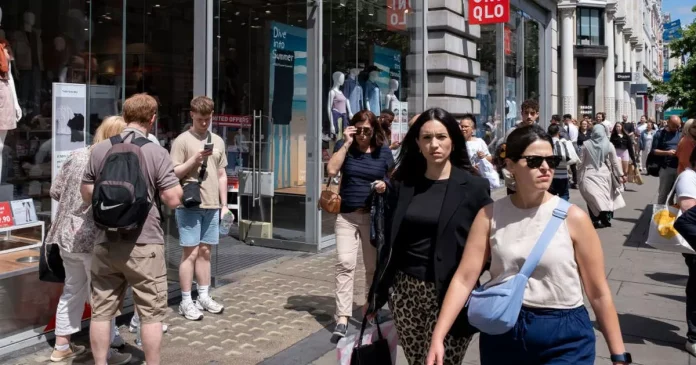Major high street jeweller Beaverbooks, with 89 stores nationwide, is set to close seven branches within weeks.
The jewellery chain – which has been part of the British high street since 1919 and employs 1,200 people – confirmed that it would be closing five branches in England and two in Scotland. The closure plans come after a recent business performance review and the branches earmarked for closure have been deemed “no longer commercially viable” by the retailer.
The Scottish Beaverbrooks sites will be the first to go, with both its East Kilbride and Dundee branches pulling down the shutting this Sunday on March 16. This will then be followed by another two sites on Sunday, March 23, with the Birmingham Fort and High Wycombe closing for good. Its Huddersfield store will close on April 5, and finally, the Croydon and Sutton Coldfield branches will be the last to go on April 6.
On the closures, managing director Anna Blackburn said: “Due to a range of factors, there are seven stores that are unfortunately no longer commercially viable, and after careful and thorough consideration we have made the difficult decision to close them.”
The number of staff affected by the move has not been confimed by Beaverbooks but on the redundancies, Blackburn told The Sun: “At Beaverbrooks we pride ourselves on our people-first culture and open, honest relationships with our colleagues. Our directors delivered the news in person to each team member.
“We aim to retain as many colleagues as possible within other Beaverbooks stores or the wider business, and are working closely with each individual affected to provide them with other options for their specific needs, supporting them with their next steps whatever they may be.”
It raft of closures follows the closure of a Beaverbooks store in Romford last March.
Despite the closures, Beaverbrooks is set to open a new store in Harrogate this spring “to accommodate consumer demand [there]”. Also, a scheduled number of branches earmarked for renovation will go ahead in the coming year. It is always important to note that some retailers close sites for other business reasons and not because they are struggling financially. Businesses often close branches and open them in other areas based on customer demand and trends.
According to data from the Centre for Retail Research published last year, around 13,479 high street stores closed for good last year, a 28% increase from the previous year. The group’s research director, Prof Joshua Bamfield, said: “The results for 2024 show that although the outcomes for store closures overall were not as poor as in either 2020 or 2022, they are still disconcerting, with worse set to come in 2025.”
It estimates that around 17,350 stores will close this year as higher National Insurance Contributions (NICs) and increases in the national minimum wage take effect in April. Approximately 14,660 will be from independent retailers.
At Reach and across our entities we and our partners use information collected through cookies and other identifiers from your device to improve experience on our site, analyse how it is used and to show personalised advertising. You can opt out of the sale or sharing of your data, at any time clicking the “Do Not Sell or Share my Data” button at the bottom of the webpage. Please note that your preferences are browser specific. Use of our website and any of our services represents your acceptance of the use of cookies and consent to the practices described in our Privacy Notice and Cookie Notice.


